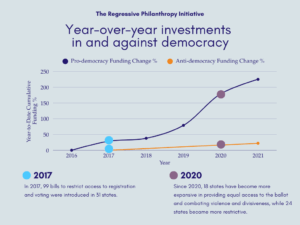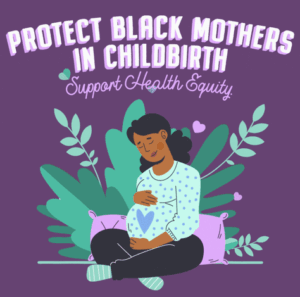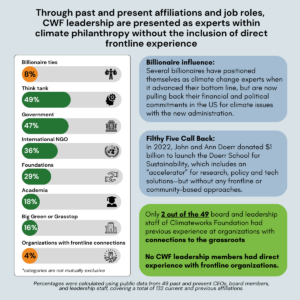This post first appeared on PhilanTopic on December 3, 2015.
When I came to Surdna Foundation in 2007, I spent several months just talking with people about the foundation and what they knew of it. Thanks in large measure to the extraordinary family and executive leadership up to that point, Surdna had a stellar reputation for creative, impactful grantmaking. But as I dug deeper, I realized that Surdna staff and board didn’t have the language to explain why we funded the things we were funding. We couldn’t articulate why some things felt right, while others simply didn’t make the grade. I helped us get started on a process to carefully examine what we’d been doing for the previous twenty years — and to think together about what it was that was the glue that held that work together. Most of us could feel it and even identify which grants were bull’s eyes, and which weren’t.
Several concepts emerged from that examination, concepts that formed the basis of our new mission statement: family, community, sustainability, and social justice. These core concepts felt both broadly consistent with the values that had been set forth by our founder, John E. Andrus, nearly one hundred years ago, and relevant to the work we wanted to do going forward.
Our story suggests that sometimes it only takes the simple step of naming what it is that you care about to begin the journey toward more effective, responsive philanthropy. Since adopting our new mission statement, social justice has become the key to understanding who we are as a family foundation and what work we want to do to help communities thrive across the United States. We’re proud to have this process featured in a new report from the National Committee for Responsive Philanthropy: Families Funding Change: How Social Justice Giving Honors Our Roots and Empowers Communities.
We share with NCRP the view that empowering communities to solve the problems of poverty, injustice, and inequity should become more prominent in the work of foundations, especially family foundations. We have long supported the work of NCRP and the principles they stand for. We have done so even as we have been on our own journey as a funder working towards those principles. We have always believed that learning is a key part of who we are and, really, core to what makes good philanthropy. I encourage you to read the Families Funding Change report and consider how Surdna’s experience with social justice philanthropy, and the experiences of other featured funders, can inform your own work.
By choosing to frame our mission as one “grounded in principles of social justice,” the board made explicit their understanding that equity and social justice must be a frame of reference for all of our work. Indeed, this framework reflects the values of the family today. Of course, a mission statement is merely words on a page unless it is put at the center of the work. And with our board’s leadership, we have kept that mission in mind as we have built grantmaking programs and revamped the foundation strategies and staff. It has been a remarkable thing to see how our explicit naming of social justice has shaped the foundation from the bottom to the top.
Social justice helped us clarify our work — both our strategies and who benefits from those strategies. But social justice is so much more than a term; it is at the center of how we foster sustainable communities. Each social justice funder must define the term in a way that is consistent with their philanthropic intentions. Family funders especially have to find that expression of social justice most comfortable for them. At Surdna, when we speak about our work, we start by acknowledging that inequity exists in many forms, including country of origin, class, race, immigration status, sexual orientation and ability, among other group identities. And our grant strategies explicitly focus on restoring a fundamental sense of fairness; confronting structural barriers and systemic inequities; and changing power relations. This approach not only gets results; it’s in keeping with the Andrus family values that motivate all Surdna does.
As we built new programs and strategies that were consistent with the new mission, something remarkable began to happen. Not only did this process force us to reflect on what changes we needed to make in our work, but it also illustrated the urgency of bringing on staff members and new philanthropic partners and grantees that were committed to this work. It encouraged us to bring our now clearly stated principles into conversations about art, economic opportunity, and environmental work. This clarity about our social justice orientation also reshaped our board, attracting remarkable new members both from the Andrus family and beyond who brought with them fresh new perspectives.
I am optimistic that if more family funders take a step back to closely examine the role they want their philanthropic assets to play in the long-term accomplishment of their goals — whatever they may be — they will see the enormous potential for impact with more grants for nonprofit advocacy, community organizing, and civic engagement.
Surdna Foundation has a social justice grantmaking story to tell, and not because we have it all figured out or because we have done something unprecedented. Our journey over the past several decades has not been heroic or extraordinary, but there are experiences we’ve had and lessons we’ve learned that might be helpful to other family foundations considering a shift toward social justice grantmaking.
To some, dedicating ourselves to fundamentally combating systemic injustice may sound too bold or even misaligned with some family foundations’ missions. But if progress toward the type of broad social change many family donors envision is ever to be achieved, almost by necessity social justice must be an animating value in their giving.
Phillip Henderson is president of the Surdna Foundation.




































































































































































































































































































































































































































